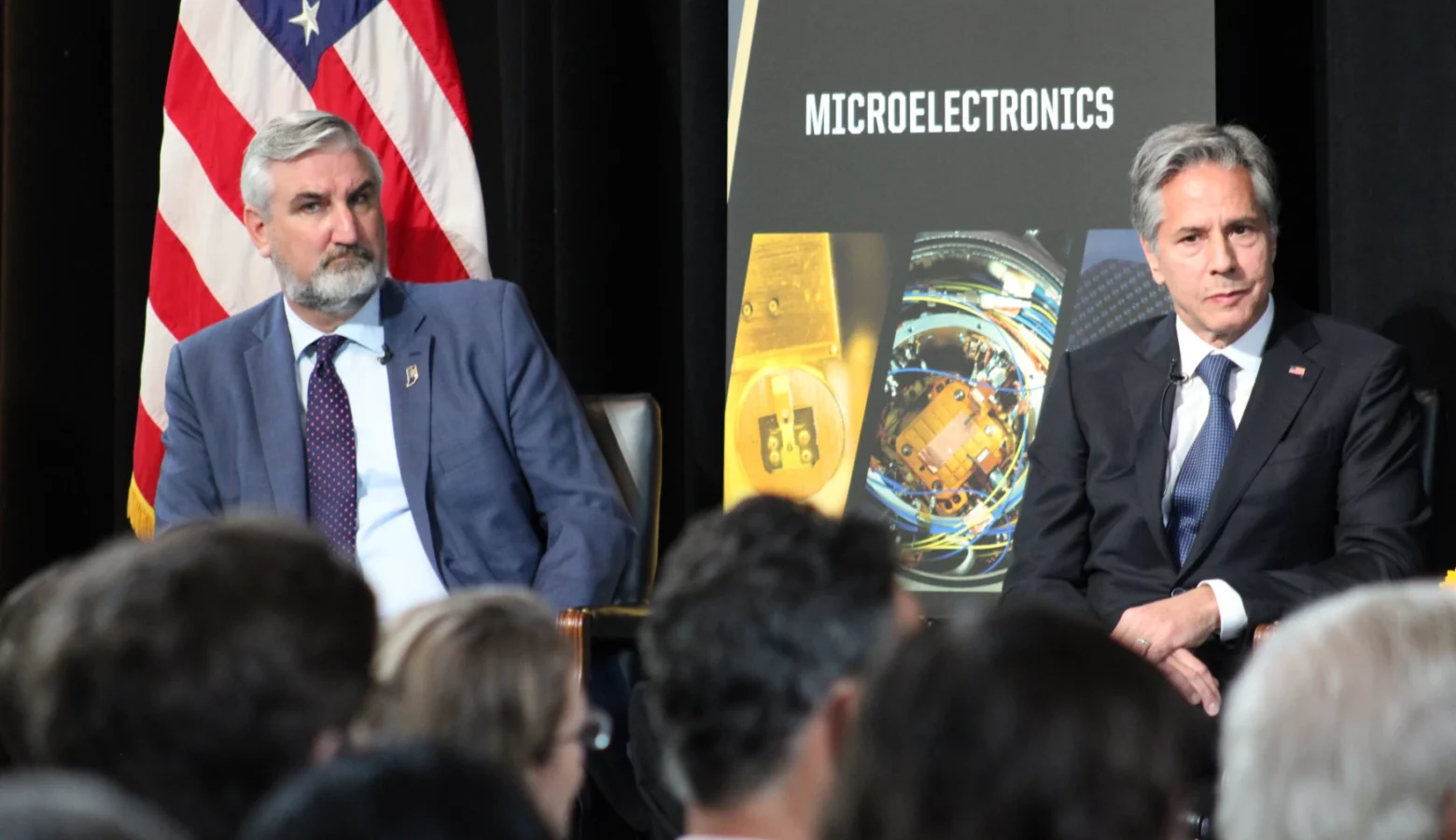US Secretaries of State, Commerce visit Purdue University to discuss CHIPS Act investments and ‘silicon heartland’

Members of the Biden Administration joined Indiana Gov. Eric Holcomb and U.S. Sen. Todd Young at Purdue University on Tuesday to tout the investments of the CHIPS Act.
The CHIPS Act, passed through congress in July, puts more than $50 billion towards bolstering the semiconductor industry in the U.S.
Semiconductor chips are used in numerous electronic devices, including phones, TVs, and even cars.
U.S. Secretary of State Anthony Blinken said supply chain issues during the pandemic made it clear that the U.S. needed to secure the production of chips.
“Yes we’re in a competition with China and our ability in that competition to offer the best choice, the best alternative, is what ultimately is going to carry the day,” he said.
Blinken said that the U.S. could lead a “race to the top” in manufacturing.
“If we sustain this… I think you’ll see a lasting recognition that America is back,” he said.
Earlier this year, SkyWater Technology announced a $1.8 billion semiconductor plant in West Lafayette, noting that funding for the plant would come from the CHIPS Act.
Purdue University has also announced a “Semiconductor Degree Program” focused on meeting the demand for semiconductor engineers.
Young said Indiana has been preparing to seize on a moment just like this.
“Indiana got to work before this legislation was signed into law, setting the table to receive federal investment,” he said.
Holcomb said in five to 10 years the idea of a “silicon heartland” manufacturing hub in the Midwest is not a stretch.
“To be able to play a part in turning a supply chain pain into a supply chain gain is an enormous source of pride as well,” he said.
Throughout the day, discussion repeatedly turned towards workforce development and how the state can improve the talent pipeline needed to meet the demand for highly skilled workers.
Holcomb said that Indiana has been building a pipeline to meet the demands of the industry.
“We’re making investments very early on, K-12, this is about GED to Ph.D. and making those investments along the way,” he said.
There is concern about the number of Hoosiers earning college degrees and long-term certificates. The Indiana Commission for Higher Education described the state’s 2020 college-going rate as “the lowest rate — and sharpest decline — in at least a generation.
U.S. Secretary of Commerce Gina Raimondo said as the country faces a talent shortage and tight labor market the country needs to invest in women.
“If we don’t as a country, as an industry, figure out how to fully tap into and unleash the talent of women in tech companies we will not compete,” she said.
Indiana’s looming, near-total abortion ban was notably absent from Tuesday’s discussion of the talent pipeline.
Economists and university students have warned Indiana may be less attractive to work or study in once the ban goes into effect.
